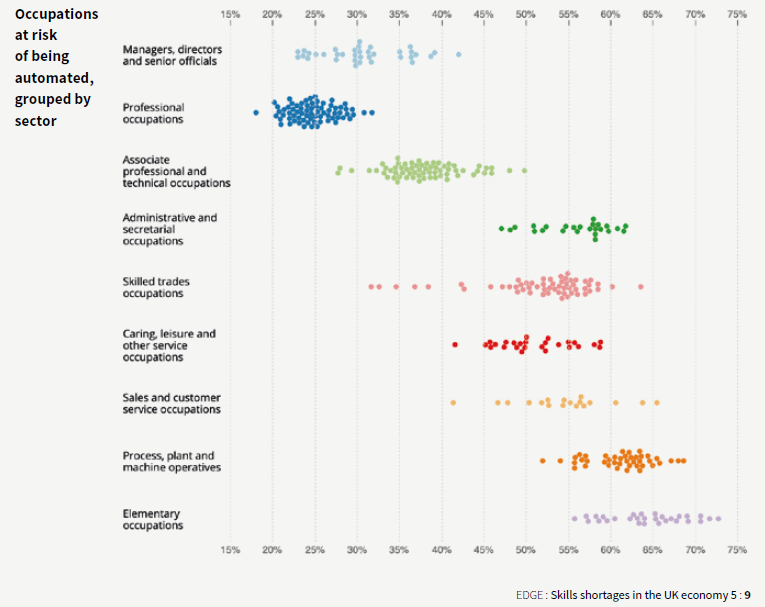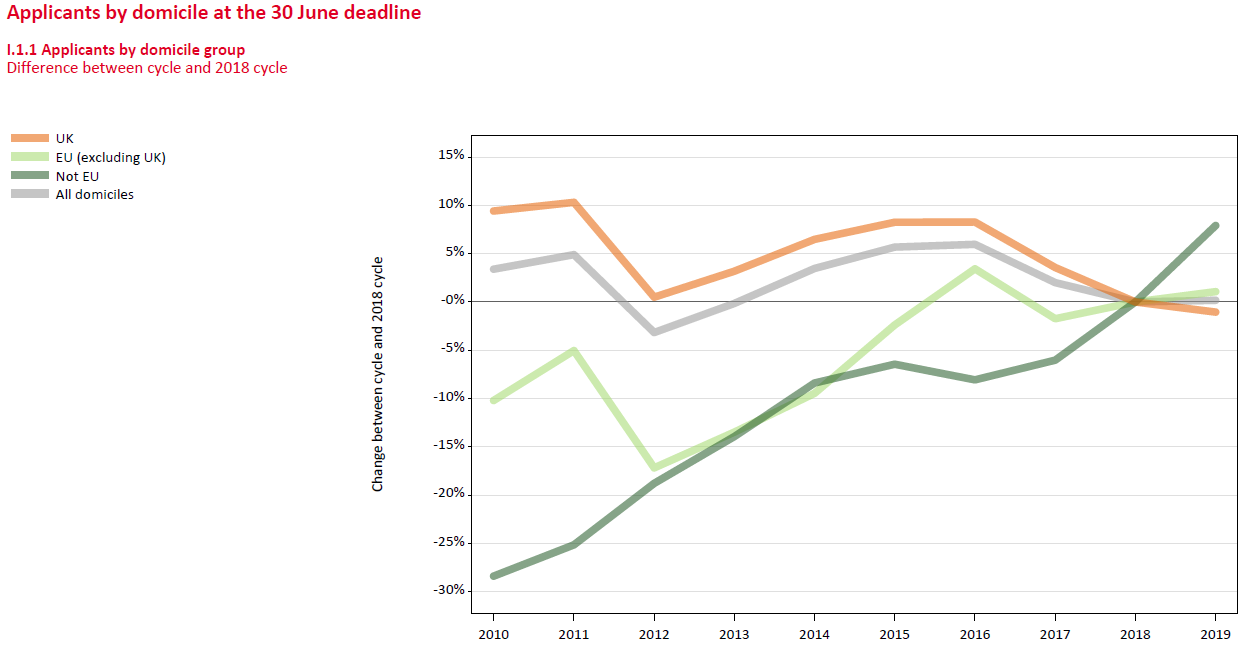Today sees a new bulletin from The Edge Foundation on skills shortages in the UK economy. The report has gathered the latest information from the employment sector, the labour market, youth and artificial intelligence (AI).
Employers can’t find who they’re looking for, and young people don’t know what employers are looking for
Statistics from The Open University Business Barometer tell an alarming story about the difficulties organisations are facing:
- 63% of UK organisations are currently experiencing a skills shortage
- 68% of employers found that they were unable to find candidates who were suitable for vacant roles
- Managerial skills were the most lacking in job applicants, followed by IT and leadership skills.
Our own Youth Census report supplements these findings:
- Less than half of the 3,008 respondents (48%) answered ‘yes’ to the question ‘Do you think you understand what skills employers are looking for?’
This points to gaps in training for young people and the education system, which appears to not yet satisfactorily deliver careers and skills education across the UK, as we believe it ought to. Whether it be through the Gatsby Benchmarks or other careers education frameworks, Youth Employment UK supports statutory skills and careers training taught across all state-run schools.
Moreover, the importance of these ‘soft skills’ is corroborated by the LinkedIn 2019 Global Trends Report. It found that with the rise of AI/automation changing the job market, 92% of talent professionals and hiring managers agree that candidates with strong soft skills are increasingly important.
This recruitment gap not only affects youth unemployment, but the nature of the employment opportunities available. The Open University Business Barometer observed that 48% of employers were forced to hire temporary staff while roles were left open. A glut of temporary opportunities may be useful for acquiring experience and income in the short term, but may not offer much room for growth for a young person looking to develop themselves in a specific sector, or sustained financial stability in the medium and long term.
AI and the education system
Latest ONS research found that 1.5 million jobs are at high risk of automation, with humans likely to be replaced by computer programs, algorithms or robots.

Automation could present substantial employment challenges for many people outside the ‘Professional occupations’ and ‘Managers, directors and senior officials’ cohorts, which most young workers fall under.
If the aim is to train today’s youth and future generations to take up more high qualified professional roles, we run into another problem identified by the UCAS 2019 cycle applicant figures. UK applicants have dropped to 506,040 from 511,460 in 2018 and from 559,570 in 2010. Meanwhile EU (excluding UK) applicants rose to 50,650 from 50,130 in 2018 and from 45,010 in 2010. Even more significantly, non-EU applicants rose from 81,340 from 75,380 in 2018 and from 53,980 in 2010.

Our Universities may be world class, but are we producing world class applicants in the UK? How will young people receive the higher education needed to enter careers at low risk of automation if the UK applications to university continue to fall?
Lessons and actions
To ensure the best employment future-proofing young workers and jobseekers, we have to clarify what soft skills are demanded by organisations – with young people’s voices at the forefront of decision making. A dialogue needs to open between employers and young people, so that both are aware what ‘soft skills’ are being demanded.
Our Youth Friendly Employer mark helps facilitate this dialogue, and offers members the following benefits:
- Access to expert advice, guidance and resources to help you attract, recruit and retain a diverse talent pipeline of young people
- Reach 1000s of young people every month through our careers hub
- Benefit from Youth Employment UK policy platforms such as the APPG on Youth Employment, as well as connections to other organisations invested in youth employment
- Access to the Youth Friendly Employer Community featuring regularly updated resources to support your HR function
With a close conversation between youth and employers, we can see young people equipped with desirable soft skills to help fill the skills gaps identified in this latest Edge Bulletin and also protect against losing work to automation. Finally, we have to prioritise and promote STEM education through funding to secure career prospects for young people.








